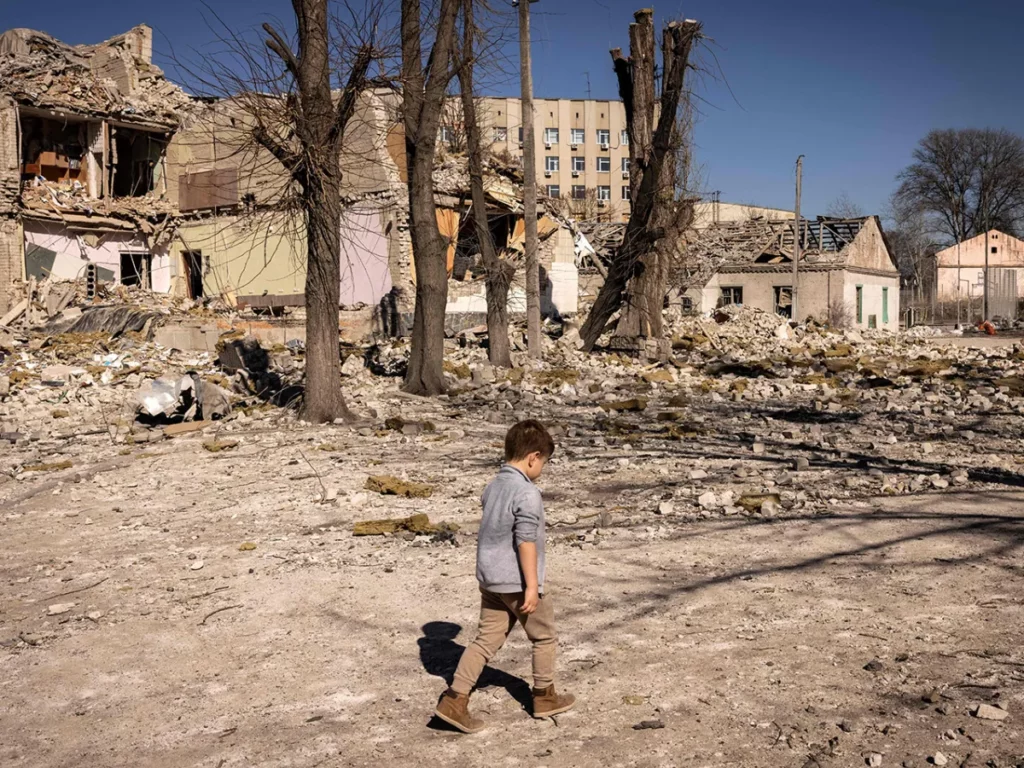Poland’s Foreign Minister Radosław Sikorski urged EU governments to stop providing social support to Ukrainian men of fighting age who are refugees in their countries.
During the Yalta European Strategy, a forum for discussing Ukraine’s European future which was held in Kyiv, Sikorski said that to “help Ukraine’s war effort”, there should be “no financial incentives for avoiding the draft in Ukraine.”
He referred to Russian drones crossing into NATO members’ airspace as reasons for EU governments to stop paying social security benefits to men of draft age and strengthen defence efforts against Russia.

Airspace violations in Latvia and Romania
On 8 September, two NATO members said that Russian drones violated their airspace, as one flew into Romania during night-time attacks on neighbouring Ukraine while another crashed in eastern Latvia.
The drone entered Romanian territory as Moscow struck “civilian targets and port infrastructure” across the Danube in Ukraine, Romania’s Ministry of National Defence reported. It added that Bucharest had deployed F-16 warplanes to monitor its airspace and issued text alerts to residents of two eastern regions.
Latvia’s Defence Minister Andris Sprūds said a Russian drone fell the day before near the town of Rezekne and had likely strayed into Latvia from neighbouring Belarus.
Rezekne, home to over 25,000 people, lies some 55 kilometres west of Russia and around 75 kilometres from Belarus, the Kremlin’s close and dependent ally.
Sikorski said that money could be spent on the prevention of these airspace violations, stating that would help both Ukraine and Europe. “As you know, a significant proportion of Russian missiles and, and drones go AWOL,” he said. “The Russians lose control over them. As has already been said, even the Belarusians are having to shoot them down.”
Nuclear risks
Sikorski also pointed to the risk of Russian drones hitting Ukraine’s nuclear power plants. “We know what happens when a nuclear plant blows in Ukraine. All of Europe has a problem. So, I’m saying we could help Ukraine by strengthening the protection of Ukrainian power plants from air assault.”
The Zaporizhzhia Nuclear Power Plant in Ukraine is Europe’s largest nuclear plant and has already been under threat of Russian attacks.
During a visit to the plant earlier this month, the head of the United Nations’ nuclear watchdog, Rafael Mariano Grossi, described the situation at the plant as “very fragile”.
The Zaporizhzhia plant, which came under Russian control in the wake of its full-scale invasion, saw artillery shelling in the area that damaged the facility’s power access, according to its operator Energoatom, which blamed Russia for the attacks.
Analysts say an explosion at the Zaporizhzhia plant would produce radiation and likely trigger panic, but the radiation risk beyond the immediate blast area would be relatively low and nothing like the scale of the 1986 Chernobyl disaster.
Sikorski said that ending financial aid to Ukrainian men would save countries like the Netherlands and Germany “tens of billions of euros” if they decided to spend it elsewhere. “It’s not a human right to be paid to avoid the draft, to defend your country.”
Russia still has a strong advantage over Ukraine in terms of soldiers as well as weapons. Earlier this year, Ukraine already implement measures that included lowering the call-up age for combat duty to 25 from 27 to increase the pace of mobilisation into the army.















